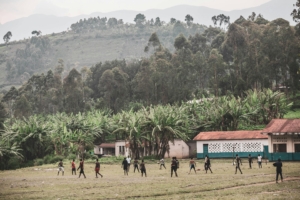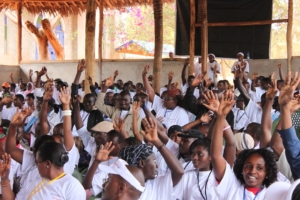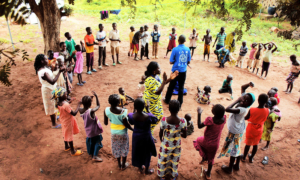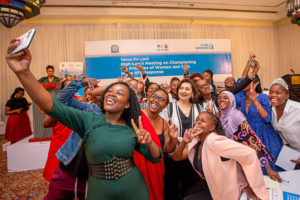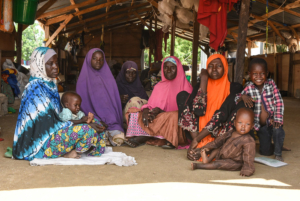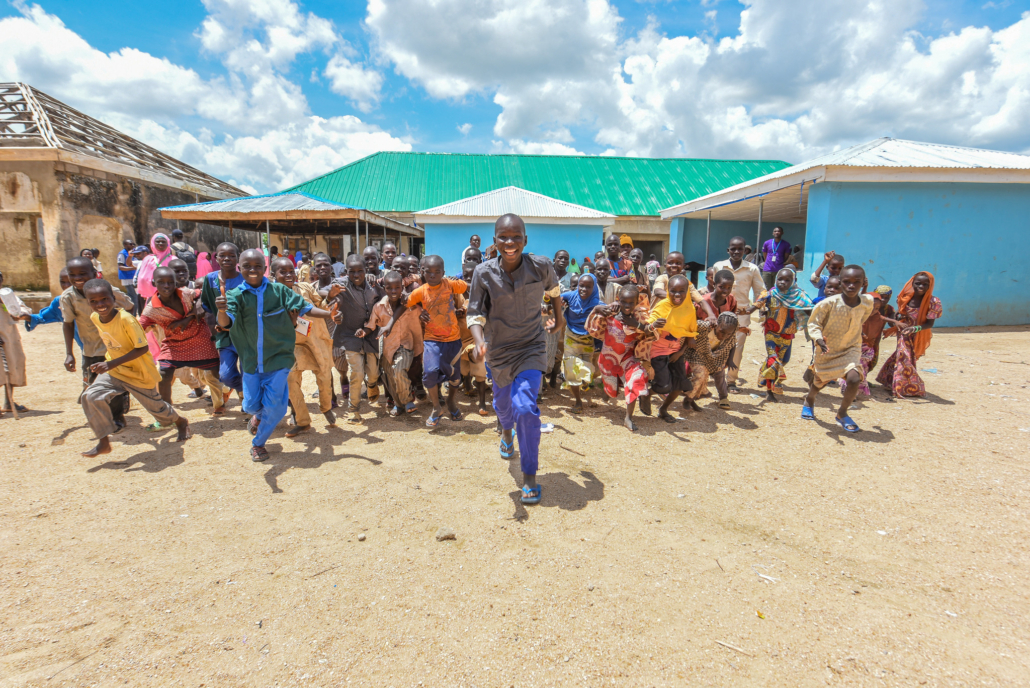 Nigeria is a nation on the brink. With a population exceeding 227 million, more than 70% are under the age of 30. By 2050, Nigeria will likely have the third highest population in the world, surpassing the United States. Yet, the country faces a brewing demographic crisis: chronic youth unemployment, political disenfranchisement and rising insecurity threaten to ignite widespread unrest. Youth empowerment in Nigeria is no longer a development goal—it is a critical tool for national stability and economic growth.
Nigeria is a nation on the brink. With a population exceeding 227 million, more than 70% are under the age of 30. By 2050, Nigeria will likely have the third highest population in the world, surpassing the United States. Yet, the country faces a brewing demographic crisis: chronic youth unemployment, political disenfranchisement and rising insecurity threaten to ignite widespread unrest. Youth empowerment in Nigeria is no longer a development goal—it is a critical tool for national stability and economic growth.
Nationwide Youth Disillusionment
As of 2020, Nigeria’s youth unemployment rate hovered around 33.3% in 2020. This economic stagnation, paired with urban overcrowding and growing distrust in government institutions, has contributed to the rise of protests like #EndSARS and the spread of armed insurgency in northern regions.
The International Crisis Group has warned that Nigeria’s fragile social contract is under pressure, and that failure to provide meaningful opportunities for youth could destabilize West Africa’s largest democracy.
Investing in Peace Through Empowerment
Programs aimed at youth empowerment in Nigeria are increasingly viewed not only as developmental tools but as instruments of peacebuilding. One such effort is the Nigeria Jubilee Fellows Programme (NJFP), a government and UNDP initiative launched in 2021. The program offers year-long fellowships in private and public sector organizations for recent graduates, helping reduce the gap between education and employment. One measurable outcome of NJFP is that more than 20,000 fellows have been matched with host organizations across various sectors in Nigeria as of 2024.
Education Access and Human Development
Nigeria ranks 164h out of 191 countries on the United Nations Human Development Index (HDI) as of the 2023 report, placing it in the “low human development” category. The HDI measures key indicators such as life expectancy, education levels and gross national income per capita.
A closer look reveals that youth empowerment in Nigeria—or the lack thereof—is central to the country’s persistent development challenges. Youth represent the engine of national progress, yet many lack access to quality education, skills training or meaningful work. According to UNICEF Nigeria, around 10.5 million Nigerian children remain out of school, with many dropping out before completing a national secondary school education.
An initiative working to combat this is the Universal Basic Education Commission (UBEC), which partners with both federal and state governments to increase school enrollment through conditional cash transfers, free textbooks and girl-child education programs.
By investing in youth, Nigeria can significantly boost its HDI over time. Improvements in educational attainment, employment rates and health outcomes among young people directly translate to gains in national productivity, income growth and life expectancy. Empowering youth is not just social policy—it is a development strategy.
Long-Term Barriers to Empowerment
Despite promising initiatives, significant barriers remain. Many rural areas lack reliable electricity and internet connectivity—both of which are essential for participation in today’s digital economy. According to the International Telecommunication Union, only 12% of Nigerians have adequate access to the internet as of May 2022.
Moreover, institutional bottlenecks and corruption continue to undermine youth-focused programs. Transparency International ranked Nigeria 145th out of 180 countries in its 2023 Corruption Perceptions Index.
Organizations like Tech4Dev and Andela are helping by building scalable programs that combine tech education with job placement services, particularly targeting underserved regions. These programs close the digital skills gap through scalable programs that merge education with employment opportunities, particularly for underserved communities.
Tech4Dev’s Digital for All Initiative
Tech4Dev’s Digital for All initiative emerged in partnership with Microsoft and Nigeria’s Federal Ministry of Communications and Digital Economy. It has provided basic to intermediate digital literacy training to more than 400,000 Nigerians with a strong focus on rural youth and women. The program includes job readiness tracks in areas such as cybersecurity, productivity tools and software development, with localized delivery to improve accessibility across all six geopolitical zones in Nigeria.
Andela’s Learning Community
With support from Google and Facebook, Andela’s Learning Community (ALC) offers intensive technical training in software engineering, product design and cloud computing. Since its inception, ALC has trained more than 100,000 young Africans with many participants securing freelance and full-time roles with global tech firms. The community-driven model allows learners to access mentorship, peer support and employment pipelines from entry-level to senior roles.
These initiatives not only equip youth with relevant, future-proof skills but also serve as bridges to employment, helping to reduce inequality and support Nigeria’s transition toward a knowledge-based economy.
Conclusion: Youth or Chaos
Nigeria stands at a major crossroad. Ignoring its burgeoning youth population invites instability. Empowering its young population—through targeted investments in education, jobs and leadership—can not only lift millions out of poverty but also prevent the next generation from resorting to violence. With the right support, Nigeria’s youth can become its greatest asset—not its greatest risk.
– Kenneth Oko-Oboh
Kenneth is based in Toronto, Ontario, Canada and focuses on Technology and Solutions for The Borgen Project.
Photo: Flickr
